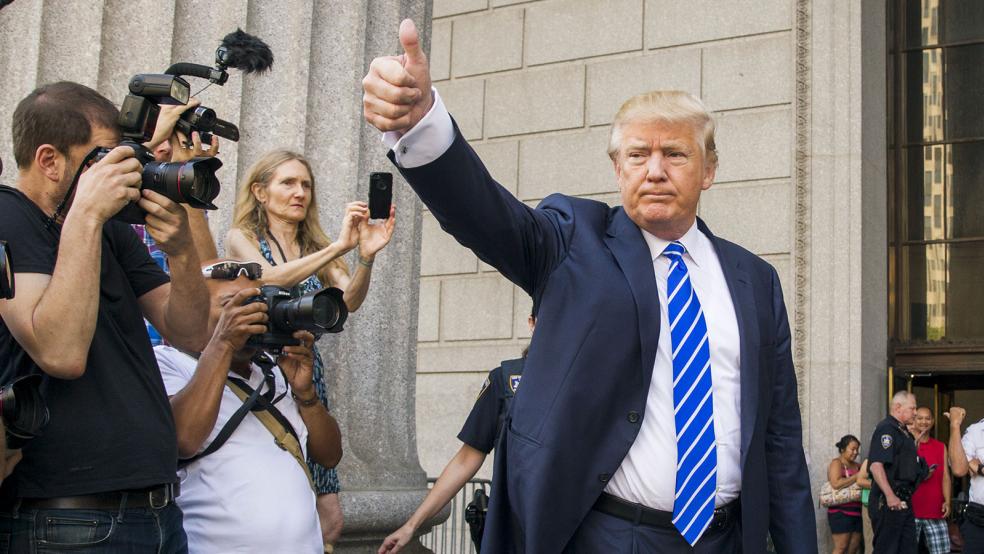The big news out of the 2016 presidential campaign this morning is that Donald Trump, having spent the last nine months insisting (somewhat questionably) that he has self-funded his own campaign, is now preparing to tie himself into the fundraising apparatus of the Republican National Committee.
This is not, by itself, big news. The amount of money spent in the general election will be an order of magnitude larger than the tens of millions Trump spent on his primary run, and few people believed Trump would pony up $1 billion or more -- despite his constant claims about his own personal wealth -- to compete in the contest.
Related: Trump Running Strong Against Clinton in 3 Battleground States
But Trump’s move to co-opt the RNC’s existing infrastructure -- a move that RNC chair Reince Priebus has repeatedly said that the system is specifically designed to allow once a nominee is chosen -- does raise at least three very big questions about the road forward for Trump and the GOP as a whole.
The first is whether Trump, who loves the spotlight and the crowds, has the discipline and the personality to persist through the infinite series of personal phone calls, meetings and high-level handholding that big political donors are going to require.
Trump has plenty of experience raising money, but he’s done it under very specific circumstances, in which lenders had a contract, collateral and recourse in the event of a problem. While the billionaire former reality television star has a spotty record when it comes to paying his business debts, as his multiple bankruptcies over the years attest, lenders were still willing to work with him because the risk appeared to be worth the potential reward.
But when people give to political campaigns, the calculus is very different. There is no demanding your money back when a candidate loses. And policy promises made behind closed doors or in private conversations during campaign season aren’t enforceable in court.
Related: Does Donald Trump Have a Money Problem?
That means that Trump, whose shifting policy positions are difficult to keep track of, is going to have to convince donors that not only does he have a chance to beat likely Democratic nominee Hillary Clinton, but that he actually means what he says when they talk to him about what he plans to do when he takes over the White House.
The second question is more about the math. Even if he mounts a full-on charm offensive, is there enough available money out there in the hands of donors willing to at least consider Trump as their candidate to bring him to the same level as Clinton?
Estimates right now suggest he’ll need between $1 billion and $1.5 billion to effectively compete with Clinton. (Though Trump’s ability to score free media almost at will is a wildcard in that equation.)
Campaign finance experts say that for Trump -- who brings no significant campaign fundraising operation with him to meld with the RNC -- the path is steep.
Related: Is Paul Ryan Backing Away from a Confrontation With Trump?
“I believe it's going to be hard. He's starting at a substantial organizational disadvantage to Hillary Clinton,” Michael Malbin, executive director of the nonpartisan Campaign Finance Institute, told CNBC.
Trump only last week named former Goldman Sachs executive Steven Mnuchin as his campaign finance director, a move that can charitably be described as late in the game.
A final question is how Trump’s supporters will react to his shift from supposedly self-financing his campaign to accepting big money donations. A repeated theme of Trump’s campaign speeches has been that all the other candidates accepting donors’ cash made them de facto servants of special interests.
However, Trump’s core voters have never demanded consistency from him, so it will be no surprise if the reaction is minimal.





